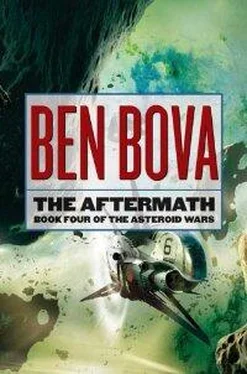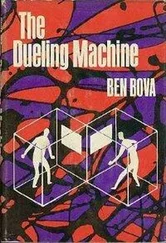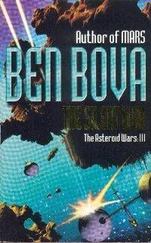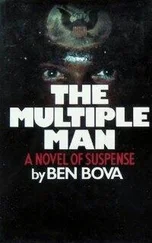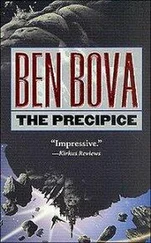The accommodations were spare, almost spartan, but they were all the home that Theo remembered. A small communications center, crammed with electronics equipment; its deck was polished plastic tiles, its overhead decorated with a fanciful ancient star map that showed the constellations as the beasts and legendary heroes of old. When he was a little kid Theo loved to sneak in here at night and gaze at the glow of the fluorescent figures.
No time for stargazing now. The next hatch led into the main living area, with its wide glassteel port that looked out into the depths of space. Well-worn comfortable sofas and cushioned chairs. Through the port Theo saw a jumble of rocks spinning off into the distance, flashes of light glinting off them.
Dad’s jettisoned our cargo, he realized. And that bastard’s shooting at us, whoever he is.
The lighting was normal here. Theo hurried through the living area and into the equipment bay that fronted the main airlock. His mother was helping Angie into her space suit, sliding the hard-shell torso over his sister’s head and upraised arms. Angie’s head popped out of the collar ring; she looked as if she’d been swallowed by a robotic monster.
Angie glared at Theo, more nettled than scared, he thought. She thinks this is all my fault, as usual, he said to himself.
It was hard to tell if his mother was worried or frightened. Pauline Zacharias seemed calm, unruffled. Theo couldn’t imagine anything that would rattle his mother. She knows Dad wouldn’t tell us to get into the suits unless we were in deep spit, but she seems totally in control of herself.
Angela was tucking her thick dark hair inside her suit’s collar, looking thoroughly annoyed. Funny, Theo thought, how Angie got Dad’s height and coloring and I got Mom’s light hair and long legs. Genes can be peculiar.
His mother reached for the gloves resting on the locker shelf beside Angie’s helmet.
“You can put these on yourself,” she said in a low, cool voice. “Quickly now. I’ve got to help Theo.”
Angie took the gloves, her eyes still on Theo. “You sure that Dad wants us in the suits, Thee, or is this just one of your little stunts?”
“Didn’t you feel the ship lurch?” he answered hotly. “We’re being attacked, for god’s sake!”
“That’s stupid,” Angie said as she tugged on her gloves. “This old boat is always shaking and groaning. Besides, who’d want to attack us?” But she sealed her gloves to the cuffs of her suit’s arms and reached for her helmet.
“Who’s attacking us?” his mother asked. “And why?”
Pauline was a handsome woman with the steady gray eyes and firm jaw of someone who had weathered her share of troubles. She was slightly taller than Theo; he had always measured his height against her, not his stubby father. She wore her sandy blonde hair cropped short, not the stylish shoulder length that she allowed her daughter to flaunt.
“I don’t know who’s attacking us,” Theo said, “but he’s smashed up Chrysalis pretty awful.”
“But Ceres is neutral territory!”
“Not anymore.”
Pauline opened her son’s suit locker.
“Mom,” Theo said, stretching the truth only slightly, “Dad said I should help you with your suit before I get into mine.”
“What about me?” Angie snapped.
Theo smirked at her. “He knew Mom would have his precious little chubbo all suited up by the time I got here.”
“Mom!” she yowled.
Pauline sat down on the bench that ran in front of the lockers. “Don’t you two start,” she warned. “This is no time for bickering.”
“Yes, ma’am,” said Theo. But he saw Angie stick her tongue out at him behind their mother’s back. As he pulled his mother’s suit torso from its rack he thought that his sister might be two years older than he, but she was still nothing more than a bratty girl.
Dad had spoken more than once about buying new nanofabric space suits for them, the kind you could pull on like plastic coveralls and be suited up in a minute or less. But they cost too much. All they had aboard Syracuse were these old-fashioned cumbersome hard-shell suits, with their big ungainly boots and heavy backpacks and glassteel bubble helmets. At least the suits ran on oxygen at normal air pressure; you didn’t have to spend an hour prebreathing low-pressure oxy like the earliest astronauts did.
They said little as they donned their suits. The ship shuddered and jolted a few times, whether from being hit by the attacker’s laser beams or from Dad jinking to get away, Theo had no way of knowing. Dull booming noises echoed distantly. Angie’s eyes widened with every thud and shake; their mother looked grim.
Leaving the visors of their helmets up, the three of them inspected each other’s suits, making certain all the connections were in place and the seals tight. Theo noticed that his hands were trembling slightly.
“What do we do now?” Angie asked. Theo thought her voice sounded shaky. She’s scared now, he realized. I am too, but I can’t let them see it. I’ve got to be the man here.
Pauline said, “Now we wait. If the ship is badly punctured we can live inside the suits until we repair the damage.”
Theo pressed the stud on his left cuff. “Dad, we’re suited up. Waiting for your orders.”
No answer.
“I told you the intercom wasn’t working, chimpbrain,” Angie said.
“The suit radios are on a different frequency, dumbbutt,” Theo told her. “Dad, we’re in our suits. What’s your situation?”
Nothing but silence. Not even the crackle of the radio’s carrier wave.
“Dad!” Theo shouted.
Angie’s face went ashen. “Do you think…”
Theo turned from his sister to his mother. For the first time in his life she looked fearful.
VICTOR SULEIMAN ZACHARIAS
He was born in one of the tent cities strung along the craggy ridges of eastern Kentucky ; his parents were refugees from the greenhouse flooding that had inundated most of Chicago. Victor’s father had once owned a restaurant in the part of that city called Greek Town. His mother was a Palestinian exile who had barely managed to escape the nuclear devastation of Israel and Lebanon. Victor was their only child; his father refused to bring another baby into a world ravaged by the savagery of nature and the cruelty of men.
At sixteen his mother died and Victor ran away from the tattered city of tents to join the army. He was short, underweight and underage but the recruiters asked few questions. After four years of guarding food warehouses and putting down riots, he won a scholarship to study—of all things—architecture at Syracuse University in the middle of New York state. He graduated just as the earthquakes in the Midwest brought on a new wave of flooding, and the Gulf of Mexico washed halfway up the Mississippi valley. Returning home, he found that his father had drowned while doing forced labor on a press gang building levees.
There was plenty of work for builders, but little for young architects who wanted to create something more than barracks for flood victims or cookie-cutter new cities for refugees. Victor was attracted to the lunar nation of Selene, far from the miseries and despair of Earth: he heard there were plans afoot to build an astronomy complex on the Moon’s farside.
He won a job over several other aspiring young architects and went to the Moon, spending the next four years of his life shuttling between the underground city of Selene and the complex of astronomical observatories and housing units being built on the farside. There he met Pauline Osgood, a Selenite by birth who had never been to Earth. They returned once, to get married, and stayed for the funerals of Pauline’s parents, victims of a food riot in Denver.
Читать дальше
